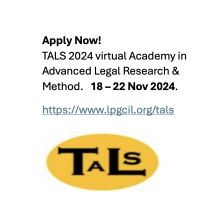Rethinking How International Law is Taught in Universities
Efforts to decolonize international law to make it more universal and inclusive have been underway for some time, with varying degrees of success. One prominent approach in this pursuit is Third World Approaches to International Law (TWAIL), which seeks to challenge and rethink international law from perspectives that center the experiences and histories of the Global South. However, TWAIL does not prescribe a specific methodology, allowing scholars flexibility in their approaches but sometimes making it challenging to delineate clear tenets that define TWAIL as a coherent scholarly tradition.
In the context of developing cohesive methodologies for this discipline, "Third World" scholars have made great efforts to refine and implement a more inclusive framework. This Insight presents some progress achieved while highlighting the challenges encountered in different areas of international law across regions like Asia, Latin America, and Africa, where scholars have embraced TWAIL to reframe and advance the teaching of international law.
